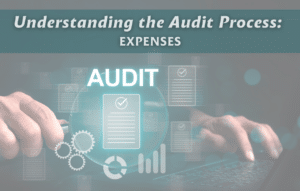The Eleventh Circuit of the United States Court of Appeals recently found a taxpayer, who was both a minority shareholder and high-level employee of a corporation, liable for the corporation’s income taxes as a transferee. The case offers a good illustration of the capability of the Internal Revenue Service (IRS) to require repayment of prior year distributions when they are interpreted to have caused the taxpayer corporation or business an inability to meet its tax obligations.
Appellant, William Kardash, was a shareholder and employee of Florida Engineered Construction Products Corporation (FECP). FECP manufactured concrete lintels and sills for use in construction, particularly new residential construction, and had been doing so in some corporate form since 1955. Having worked for the company since 1979 in a number of capacities, Kardash rose to the position of President of Manufacturing and Operations, a position he held until retiring in 2014. At all times relevant to the appeal, Kardash was also a shareholder, owning a minority equity position in the company.
During the early 2000s, FECP’s revenues rose dramatically with the booming housing market, growing to over $132MM. Following the subsequent bust in the industry, revenues dropped back to just $55MM. Throughout this period, FECP paid no federal income tax, and its two majority shareholders siphoned substantially all of the cash out of the company. The two are believed to have used hidden bank accounts and shell corporations to facilitate their fraud, undetected. At no point was Kardash, who focused on managing FECP’s production operations, involved in the cash-siphoning scheme.
In 2009, the Commissioner issued a notice to FECP informing the company of its tax deficiencies, additions, penalties, and interest accrued during the years 2001 to 2007. This marked the beginning of a three-year IRS investigation into FECP’s assets and other outstanding liabilities.
The Commissioner entered into an agreement with FECP in which the company stipulated that it owed the IRS $129,130,131.60, which it would repay in monthly installments of $70,000. At this rate of payment, FECP would satisfy its tax liability in a little over 150 years. Should FECP begin to afford larger monthly installments, however, the agreement stipulated that the Commissioner could increase FECP’s monthly obligation at his discretion.
With the agreement in place, the Commissioner began to pursue funds that the IRS argued were fraudulently transferred to its shareholders. While the controlling shareholders were forced to pay restitution, the minority shareholders, including Kardash, contested the Commissioner’s determination of liability in the tax court, arguing that they were not liable as transferees for FECP’s outstanding tax liability. Only Kardash’s transfers are the subject of this appeal.
The Internal Revenue Service’s theory of transferee liability focused on two sets of payments from FECP to Kardash: “Advance Transfers” of $250,000 and $300,000 in 2003 and 2004, respectively, and “Dividend Payments” of approximately $1.5 million, $1.9 million, and $57,500 in 2005, 2006, and 2007. According to the Commissioner, all of these payments were actually or constructively fraudulent transfers under the Florida Uniform Fraudulent Transfer Act (FUFTA) because FECP did not receive any value from Kardash in exchange, and FECP was insolvent or the transfers led to FECP’s insolvency.
Kardash argued that both the Advance Transfers and Dividend Payments were designed to replace his lucrative bonuses, which FECP had temporarily suspended in 2003. Thus, according to Kardash, the transfers were part of his compensation package and were not fraudulent. In any event, he reasoned, FECP did not become insolvent until 2006, meaning that any prior payments could not satisfy the insolvency element of constructive fraud. Mr. Kardash also argued that, FUFTA notwithstanding, the Internal Revenue Service failed to exhaust all reasonable collection efforts against FECP before pursuing transferee liability against him, in violation of 26 U.S.C. § 6901. Mr. Kardash was not successful in any of his arguments.
Affirming that Tax Court decision, the Court of Appeals rejected Mr. Kardash’s arguments, finding that:
- the IRS did not have to exhaust collection efforts against the corporation before pursuing transferee liability because the claim was brought under state law that did not require it;
- the payments were fraudulent dividends and not compensation because both the corporation and the taxpayer treated them as such, with the taxpayer benefitting from the reduced tax rate; and
- while the taxpayer’s dividends were small compared to those of the majority shareholders, the payments were substantial enough to contribute to the insolvency of the corporation.
Interestingly, the case transcript notes that, “William Kardash was not a villain. By all accounts, he was a victim of the fraud conducted by his friends and coworkers at FECP, [majority shareholders] Ralph Hughes and John Stanton. In perpetrating that fraud, however, they transferred funds from FECP to [Mr.] Kardash that rightly belonged to the Internal Revenue Service, and the law of Florida requires that he pay those funds back. We therefore DENY the petition to review the decision of the Tax Court.”
Too seldom discussed in the context of dividend payments, bonuses and cash advances is the effect that the distributed cash will have on the company’s future capabilities to meet its obligations, including its tax obligations. Officers and shareholders must respect the entity and its need to first meet its financial obligations. As is illustrated in this case, the IRS has a broad array of challenges available under both federal and state law to reclaim those monies that were found to be distributed inappropriately.
The full citation for the case is William Kardash Sr. v. Commissioner of IRS, US Court of Appeals, Eleventh Circuit, 2017-2 U.S.T.C.
Questions and comments can be directed to Bob Grossman or Don Johnston at 412-338-9300.








